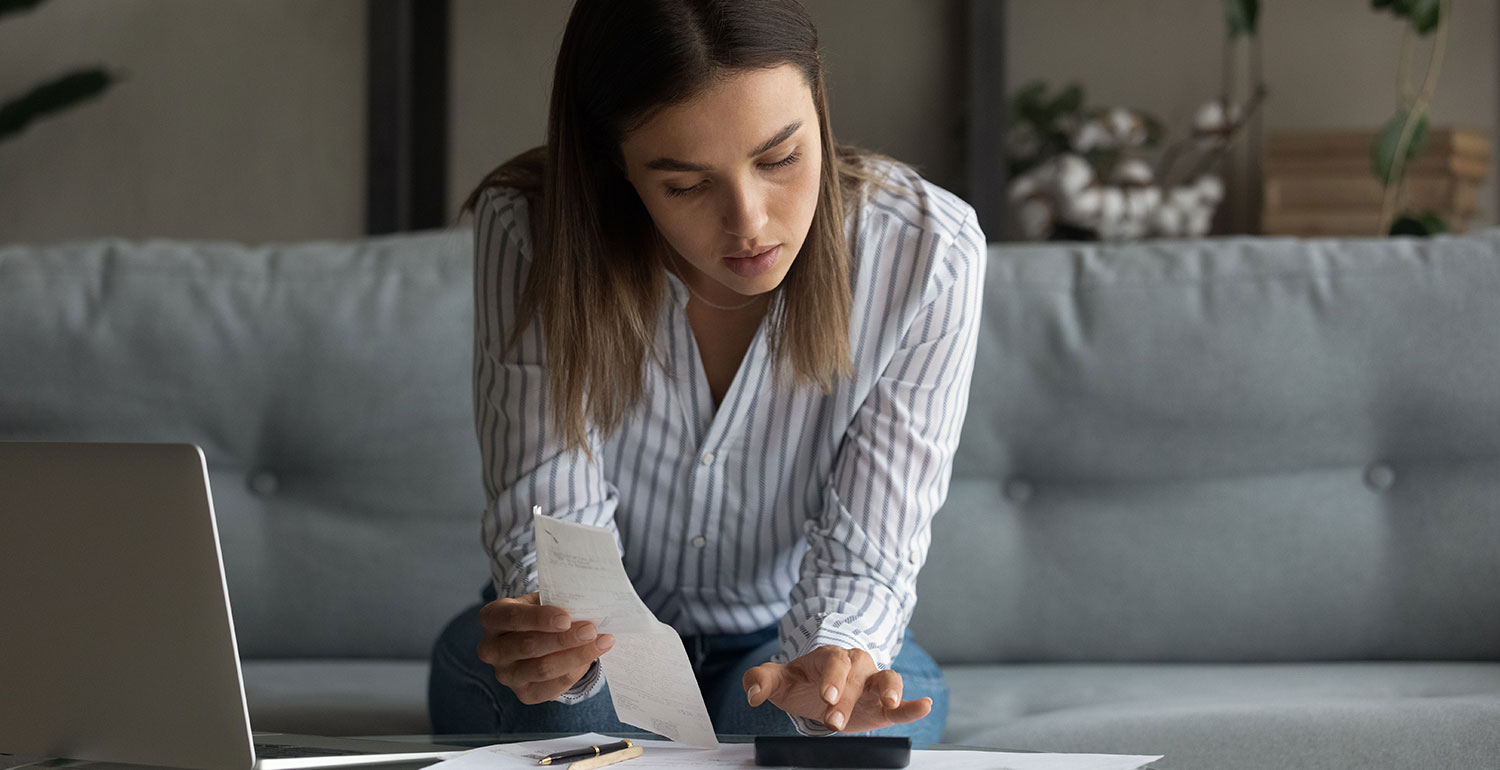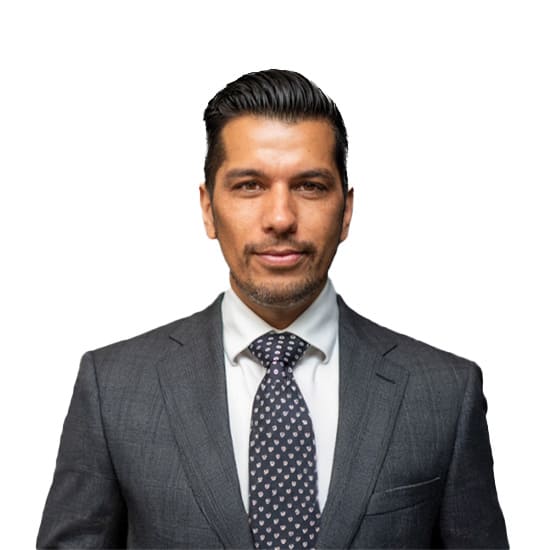How Much Do You Need To Buy A House?
by Mark Polatkesen, General Manager - Mortgage Domayne
And how much should you really spend on your first home?

Looking to buy or build? Create a realistic budget based on this guide.
Buying or building your first home is an exciting prospect. But before you can even start looking, there’s a fundamental question you need to answer. How much can you afford to spend?
The answer will depend on the size of your deposit, your income and what other expenses you have. However, that’s not the end of the story. Sometimes, it makes sense to stay well under the amount a lender will let you borrow. In other circumstances, spending the extra now will help you save in the long run.
So how do you arrive at the budget that’s best for you?
Start with the basics
What you can afford in your first home depends on your income and outgoings. Draw up a budget that gives you an accurate and comprehensive idea of what both are. Don’t forget to include all forms of income, including:
- Salary
- Government benefits, for example Family Tax Benefit
- Share dividends
- Rental income

If you’re thinking about buying or building your first home, start the process by getting a better understanding of your parameters and drawing up a budget.
Then get into the detail of your extra costs
Your expenditure should also be as accurate as possible. Rent, bills and other fixed expenses are relatively easy to assess, but variable costs can add up to far more than you realise. The best way to make sure you’re capturing all of your expenses is to download at least the last six months of bank statements and add up your spending. You might be surprised at how many hidden costs there are.
You’ll need to include all debts, as well. If you’re making credit card payments, paying off white goods or furniture, leasing a car or servicing a personal loan, those are part of your expenditure. The bank will want to know about every liability once you get to the point of applying for a loan and getting pre approval, so it’s best to have these listed.
Your budget will tell you how much you have left over after paying expenses every month. But how do you know if that’s enough? Home owner costs aren’t the same as those incurred by tenants. As well as your mortgage repayments, you’ll need to cover council rates, water rates, home and contents insurance, home maintenance costs as well as lenders mortgage insurance depending on the borrowing percentage of your loan. If you’re buying into strata, that’s another expense that tenants don’t have to meet.
How much is a down payment for a house in Melbourne?
For a house in Melbourne, the down payment, or deposit as we call it in Australia, typically ranges from 10% to 20% of the property value.
For a median-priced home, valued at approximately AUD 800,000, this equates to a down payment of AUD 80,000 to AUD 160,000.
Opting for a lower down payment may mean you have to pay lenders mortgage insurance (LMI), which protects the lender but adds to the overall cost. Factors such as your financial situation, the specific property and purchase price, and the lender's requirements will influence the exact deposit amount required.
What percentage of your income should your mortgage be?
When you’re considering the required percentage of your income on a mortgage for a new home, use the 30% rule.
When you’re measuring housing affordability as a first-home buyer, and trying to figure out how much of your income you should spend on your mortgage, the rule is that your housing costs shouldn’t be more than 30% of your gross (pre-tax) income.
This is to buffer you against interest rate hikes.
If you are very frugal with your spending, or you have a larger than average income, you might have significantly more than 50% of your income to spend on housing.
However, if your mortgage is such a large proportion of your income, you can very quickly fall into mortgage stress. If rates rise, you won’t have much room to cut back on other expenses to compensate.
Estimate your monthly repayments with our Mortgage Calculator to understand how different loan amounts and interest rates affect your budget.
To use the 30% rule, follow these steps.
- Calculate 30% of your gross income on a monthly basis. If you earn $100,000 per year, 30% equates to $2,500 per month.
- Using a home loan calculator, add the figure from Step 1 as your monthly repayment.
- Set the interest rate at a basic variable rate, or a little above the fixed rate to allow for interest rates rises. At 2.5%, you can borrow $630,000 with a monthly repayment of $2,490.
- Assuming you have a 20% deposit, your total budget is $787,500 ($630,000 /0.8). Your deposit will be $157,500.

When mapping out your saving strategy, the 30% rule is a good place to start as it works a buffer into your budget incase interest rates rise. Featured here: Montague Grand Deluxe, Orana Estate, Clyde North.
Look to the future
There are times when borrowing up to your maximum budget for your home loan can make sense.
Moving house is expensive, thanks to real estate agent costs and stamp duty, so you want to build a first home that will be suitable for at least the next five years (and hopefully many more).
If you’re planning a family, or already have young children, you’ll need to make sure there’s enough space for them to live comfortably as they grow.
If it’s reasonable to expect that your income will go up, that acts as another safety buffer. Perhaps you’re close to completing professional qualifications, or you’re in line for a promotion. If you’re confident you’ll see a salary hike soon, it’s less risky to stretch your budget now.
On the other hand, make sure you’re not extending yourself too much if your salary drops.
Consider all costs
When buying a house, it's essential to consider all related costs beyond the purchase price and property value.
This includes ongoing costs like home and contents insurance to protect your investment and belongings. It's also crucial to account for the fees associated with working with a mortgage broker and a real estate agent, as well as the inevitable stamp duty that comes with purchasing a property as well as conveyancing fees.
It’s a good idea to also consider a savings goal so that you have some buffer for future expenses including having a baby or going on a holiday. Take into account your total home loan amount as well as all of your existing and future costs.
Estimate your first home affordability using our First Home Buyer Calculator, factoring in LMI and establishment fees.
Contact Carlisle Homes
At the end of the day, building your first home should be an exciting time, not a stressful one. Make sure you’re comfortable with your budget so you can relax and enjoy moving in. Do your research, find a mortgage structure that’s right for you and then contact Carlisle Homes to find your dream property. We offer reliable financial services that will help you through the process as a first home buyer.
If you’re ready to look for a home loan, or you just want to know what your options are, contact our in-house construction finance specialists. To find out more about buying the house and land package that suits your budget, call Carlisle Homes on 1300 328 045.

Mark Polatkesen
General Manager - Mortgage Domayne
With over two decades of experience in the finance industry, Mark Polatkesen leads Mortgage Domayne, one of Australia’s largest construction-focused mortgage brokerages.
Read more